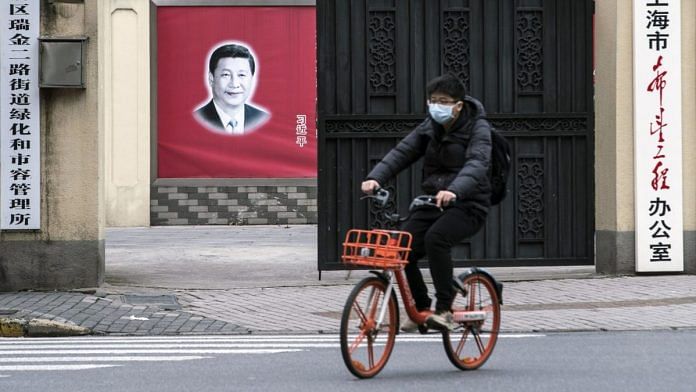Beijing: Drugmakers from AstraZeneca Plc and GlaxoSmithKline Plc to BeiGene Ltd. agreed to cut prices on some of their newest drugs in China by an average of 51% in order to be covered by the country’s national insurance fund.
A total of 119 new therapies — treating ailments from pulmonary diseases and diabetes to cancers and lupus — were added for coverage by the state-run medical safety net after drawn-out negotiations, the National Healthcare Security Administration said in a notice posted on its website Monday.
The average price cut is 10 percentage points less than last year, a relief to both domestic and foreign drugmakers that have seen their profits eroded by Beijing’s push to drive down health-care costs. Companies are eager to get their treatments on the list even at steep discounts to gain access to the world’s second-biggest market for pharmaceuticals.
Patients in China will only need to pay for a small fraction of the cost of these drugs out of their own pocket as the lion’s share of the bill will be footed by China’s 2.44 trillion yuan ($373 billion) national medical insurance fund, which covers more than 95% of the country’s 1.4 billion people. The list of medicines covered by the fund has been updated annually with new entries since 2017, when Beijing accelerated its campaign to bring new drugs to its growing middle class as quickly and cheaply as possible.
In total, Chinese patients can now draw on state insurance to pay for 2,800 medicines. Beijing also managed to slash prices more than 40% on average for 14 drugs whose annual sales exceed 1 billion yuan each. The new version of the drug-reimbursement list will be effective from March 1.
The drugs that made it on the latest list include AstraZeneca’s cancer therapy Zoladex. Brukinsa, the first cancer drug from China to ever receive U.S. Food and Drug Administration approval, developed by Beijing-based BeiGene, was also added.
Glaxo drugs Benlysta and Volibris, which treat lupus and high-blood pressure in the lungs, respectively, made the list. Other top-of-the-line therapies from multinationals were a diabetes drug from Novo Nordisk S/A, a medicine for chronic obstructive pulmonary disease developed by Astra, and an ulcerative colitis therapy by Takeda Pharmaceutical Co.
The latest inclusions feature popular immune cancer therapies known as PD-1 inhibitors, cancer treatments that use the body’s immune system to fight tumors — a priority for Beijing given that China has around 4 million new cancer patients annually. Included are treatments developed by local companies BeiGene, Jiangsu Hengrui Medicine Co. and Shanghai Junshi Biosciences Co.
The list also highlights treatments for Covid-19 such as the antivirals ribavirin and arbidol, although China has largely contained coronavirus flareups after the outbreak a year ago in Wuhan that sparked the pandemic.
It is unclear how deep a cut each company consented for individual therapies. The National Healthcare Security Administration in the past has reached agreements with some drugmakers to withhold the details of the price cuts. Those missing from the new list include Merck & Co. and Bristol-Myers Squibb Co.’s best-selling cancer therapies Keytruda and Opdivo.
For foreign drugmakers, the competition in China has brought significant sacrifices. New drugs are often brought to the market at prices lower than they are sold in the West, but still face competition from a growing legion of Chinese biotech firms developing similar medicines that can be sold more cheaply.
The process can be painful for local companies as well. Chinese drugmaker Simcere Pharmaceutical Group said it had agreed to slash the price of its newly approved stroke therapy by almost 70% to get it on the reimbursement list, figuring expanded access would fuel sales. Green Valley Pharmaceuticals, based in Shanghai, said it had participated in the price negotiations for its Alzheimer’s disease drug but didn’t obtain reimbursement status.
Global pharmaceutical companies’ older drugs that have gone off-patent are also facing price cuts. In a separate national campaign in which China’s public hospitals bulk-buy generic medications, prices have been driven down by as much as 90%. – Bloomberg
Also read: ‘State of emergency’ in Beijing as it records 13 Covid cases since 14 Dec after 134-day lull







M.Sc chemistry University from Ayodhya dhaam UP India
All indian pharmaceutical companies will see a huge decrease in their margins in the coming quarters due to this. Maybe this will trigger indian market crash, which has been riding on the pharma Bull run!